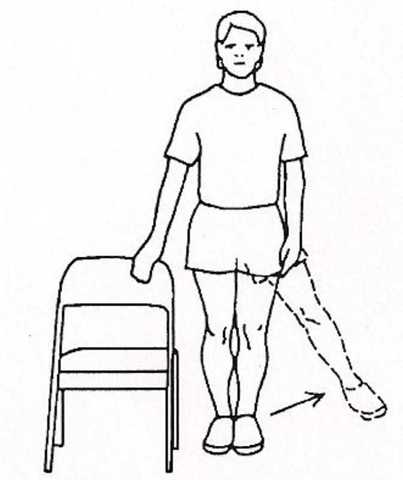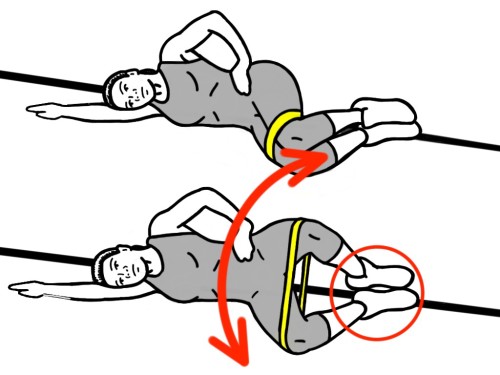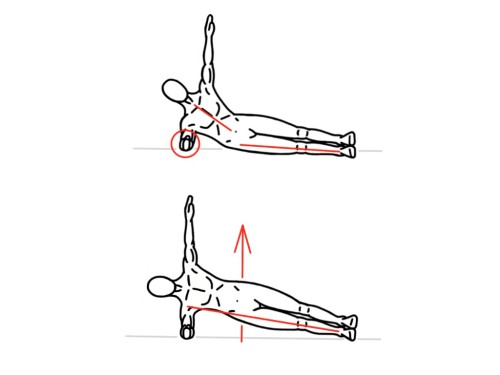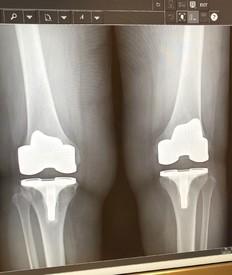Running or walking - which is best?

karris43
Posts: 34 Member
I'm 55 and have a resting heart rate of 57bpm.
I use a Fitbit surge to measure my steps and heart rate. I've gradually worked up to walking around 40 minutes in the morning and 40 minutes in the evening - around 10k steps per day, usually more. I have trained myself to walk to 130BMP music (I used to walk very slowly due to back pain).
Two weeks ago I started doing the C25K on my treadmill in an effort to boost my weight loss. My Fitbit stats for the last week show the following:
Walking: 39 minutes 129 average BPM 374 calories
Running c25k week 2: 29 minutes 133 average BPM 307 calories.
My walking BPM ranges from 114 to 129 (depending if I am walking uphill or downhill). I have no pain when walking at all - I break a sweat but am not really out of breath.
Running BPM is 127-133 has resulted in knee pain and hip pain which is getting worse every time I run (on grass or on the treadmill).
I seems to me that I am burning almost as much fat walking as I am running, but running hurts my joints. Can this be right? Would more walking have the same effect as more running?
I use a Fitbit surge to measure my steps and heart rate. I've gradually worked up to walking around 40 minutes in the morning and 40 minutes in the evening - around 10k steps per day, usually more. I have trained myself to walk to 130BMP music (I used to walk very slowly due to back pain).
Two weeks ago I started doing the C25K on my treadmill in an effort to boost my weight loss. My Fitbit stats for the last week show the following:
Walking: 39 minutes 129 average BPM 374 calories
Running c25k week 2: 29 minutes 133 average BPM 307 calories.
My walking BPM ranges from 114 to 129 (depending if I am walking uphill or downhill). I have no pain when walking at all - I break a sweat but am not really out of breath.
Running BPM is 127-133 has resulted in knee pain and hip pain which is getting worse every time I run (on grass or on the treadmill).
I seems to me that I am burning almost as much fat walking as I am running, but running hurts my joints. Can this be right? Would more walking have the same effect as more running?
0
Replies
-
ATM, you are probably running and walking about the same during the time you spent exercising; about 2 miles. If you continue running, you will eventually speed up, so in 40 minutes you will probably be able to run 4 miles. Obviously, you'll burn more calories running 4 miles than two.
Generally, as you lose weight and become more used to the impact of running, the joint pain goes away. I'm 60 and have no joint issues running, whereas I often have knee pain while hiking, because of the different terrain. However, that's not true for everyone. A lot depends on how much you weigh. Less weight equals less impact.
Most important is to do an exercise you enjoy doing. You could come to love running, but it may take a while. At first it feels really hard. Later on there will still be days when it feels really hard but if you gain enough good feelings out of your running, you'll continue.
Do you have good well cushioned shoes? They make a real difference in terms of impact. If not, get to a good running store and find some shoes that fit your gait. They should help.4 -
There are so many factors that could affect your run. Are you wearing the right shoes? Are you more than 20 pounds overweight? Is your form correct? Etc. if you are only raising your bpm by that amount, (running vs walking) and you are having no pain with walking, then the speed your going is probably not that much faster than your brisk walk I'm guessing. Proper form and the right shoes are essential to pain free running. If you are truly serious about wanting to run, then go to a local running store and get fit with the right shoes and have them record your form while you run. Most running stores that are not big box stores will watch and record you to see how your stride and form is affected by the shoes you choose.
Otherwise, stick with the walking for now. There's no need to hurt yourself while trying to be healthy!1 -
Are you religiously stretching after every workout? That may be the cause of your hip/knee pain.
Walking and running are both good, except that very well run studies show that about 2/3 of people who do them do not lose weight (I'm one of them).
Whichever one you will happily do is the one to do. For fitness if nothing else. And, here's a link to the four stretches you show do every day of your life to help maintain the health of your legs: https://m.youtube.com/watch?v=P0Sg1MHhmjY
https://m.youtube.com/watch?v=P0Sg1MHhmjY
Enjoy!3 -
Cycling.5
-
Thank you for replying. That makes sense. I do want to run, but I am really worried that I am doing myself harm. The pain is in my left hip and outer left knee mainly and sounds like it could be IT band. I am still quite heavy. Maybe I should try when I have lost a bit more weight?1
-
I think the extra weight makes a huge difference. I'm not saying that if people are heavy that they shouldn't run, but it is obviously more stress on your joints. If walking is giving you that results and satisfaction that you desire without the pain, them I would stick with that. As you continue to lose weight, keep trying it out. See if the weight loss makes a difference. Running should be fun, not painful! If you run through the pain constantly, (all runners do occasionally) you will end up injuring yourself and not even want to run. So don't give up, just give it more time. The fact that you are out there moving is what is important! WTG! Keep up the great work!3
-
-
I found running to be less difficult when I was within 20 lbs of my goal weight. Being just a bit older than you, I wouldn't run if it's causing that type of pain. It's not worth it. The risk of injury is very high. I have friends who pushed through the pain, didn't recover adequately, etc., and have permanent injuries that will affect their walking ability the rest of their lives. You can't stop before it gets too bad, because there's not really a lot of warning, the injury pops up during an unrelated activity.
You could work on foam rolling the painful areas before and after walking, lose the rest of your weight goal (which you don't state so I don't know if it's 5 lbs or 50 lbs), and try again at that time.
Great job on the walking!1 -
It's not 100% relevant, but the discrepancy in calorie burn is due to the intermittent nature of your run/walk routine and shortcomings in Fitbit technology. The numbers cant really be used for an effective comparison.
In general, not everyone can run right away, esp if overweight. I agree with those who say it might be too much for you right now. You are probably better off increasing your walking duration to burn more calories.2 -
Running is much better. Don't be afraid of hurting your knees or hips.... If you have problems like this it is probably because you didn't use them enough at the first place.... using them will reinforce them.18
-
Walking: 39 minutes 129 average BPM 374 calories
Running c25k week 2: 29 minutes 133 average BPM 307 calories.
I'm a little confused around whether you're talking about music BPM, or HR, but I'm equally not entirely convinced that either make a huge difference given where you are.
There are a number of reasons for pain whilst running, generally inappropriate or ill fitting shoes, muscular strength issues or running gait. Given what you describe it could be any, or all, of those.
When you're running aim for a very short pace, rather than reaching out with your leading leg. Equally if you're trying to run too quickly that may cause you problems.
Fwiw I'd ignore the calorie estimate from your FitBit, so that comparison isn't all that valid. Equally your proportion of fat doesn't really compare in the same way.1 -
Running is much better. Don't be afraid of hurting your knees or hips.... If you have problems like this it is probably because you didn't use them enough at the first place.... using them will reinforce them.
Ignore this. Bad advice. From a running coaching perspective I'd never encourage running through pain.10 -
Totally agree with MeanderingMamnal on this one.2
-
Running is much better. Don't be afraid of hurting your knees or hips.... If you have problems like this it is probably because you didn't use them enough at the first place.... using them will reinforce them.
Holy hell, I've seen some bad advice in my years of being here, but this takes the cake.
OP, if you are interested in running, or even increasing walking for that matter, I first suggest getting fitted for the correct shoe. That means going to a run speciality shop where they look at your feet, gait, etc. Then they recommend the best shoe for your feet.
I agree with posters above that you could just be transitioning too soon. Although C25K is a great program, your joints still might not be up to the task. Increasing your walking, even increasing your walking speed, could assist getting there if running is your goal. But if you are only interested in calorie burn to aid in creating a calorie deficit, do the one that one have you left with injuries.
5 -
Consider intervals...for example run 5 minutes and then walk 1-2 minutes. This will give you a cardio workout yet also give you a break when walking. It seams distance is how much you will burn...in other words 1 mile equals 100 cals burned if I run or walk HOWEVER it takes me almost 20 mins to walk it compared to 10 mins to run it. Running can also get your heart rate up for more after calorie burn.
Do what works for you1 -
antennachick wrote: »Consider intervals...for example run 5 minutes and then walk 1-2 minutes.
That's significantly more aggressive than the originator describes as giving her problems.It seams distance is how much you will burn...in other words 1 mile equals 100 cals burned if I run or walk HOWEVER it takes me almost 20 mins to walk it compared to 10 mins to run it.
Walking burns about half the calories that running burns.
Running calories per mile = c0.6* bodyweight in lbs
Walking calories per mile = c0.3 c bodyweight in lbs
2 -
I reread and saw that you have a treadmill. I would recommend incline walking--start with the incline at 8-10% and pick a speed where you can maintain that grade without handrail support. In the beginning, you might have to do intervals where you lower the incline every few minutes to give yourself a break. This will allow you increase training intensity and calorie burn w/out the impact of running.2
-
MeanderingMammal wrote: »antennachick wrote: »Consider intervals...for example run 5 minutes and then walk 1-2 minutes.
That's significantly more aggressive than the originator describes as giving her problems.It seams distance is how much you will burn...in other words 1 mile equals 100 cals burned if I run or walk HOWEVER it takes me almost 20 mins to walk it compared to 10 mins to run it.
Walking burns about half the calories that running burns.
Running calories per mile = c0.6* bodyweight in lbs
Walking calories per mile = c0.3 c bodyweight in lbs
First that was an example, I said do what works for her.
Second I said "I" based on what I know 'I' burn the same amount running or walking...I guess I don't run fast enough to reach your stated amount of twice the calories.0 -
I'm sticking with walking. I can walk many more miles and keep it up for much longer than i can with running. Which in the end results in more of a calorie burn.6
-
I took up running when walking got boring. If you love walking, keep doing it.
Those pains point to some needed stretches and strengthening in your core and your hips. Don't keep running through that sort of pain because you will risk further injury.1 -
Some people should never run... walking is good, you are cruising at a good clip... start a flexibility program, and start strengthening your legs... squats and lunges... high impact exercise like running can do more harm than good especially if you are carrying more than an extra 40 lbs... increasing your flexibility, and leg strength will prepare you for higher impact activity... work on the leg strength for 12 weeks then give a slow jog a go... if that hurts...wait until you are lighter and continue with the strength exercises1
-
I reread and saw that you have a treadmill. I would recommend incline walking--start with the incline at 8-10% and pick a speed where you can maintain that grade without handrail support. In the beginning, you might have to do intervals where you lower the incline every few minutes to give yourself a break. This will allow you increase training intensity and calorie burn w/out the impact of running.
Can't agree with Azdak more. Put that treadmill to more use and do some incline walking. You already have the walking down. Incline walking does burn more calories than walking, works different muscles and is less stressful on the joints than running. I love running but my joints don't. So, I have to compromise and do more incline, less running to get a higher burn going.1 -
At 55 I would hazard a guess that you already have age related wear in your knee joints, especially if you've carried some extra weight for awhile.
It's not a 100% given, just a good possibility.
Personally I'd stick with the walking.1 -
I don't want to give the impression that someone over 50 should not be running. There is really no age limit. Whether or not to run is based more on fitness level, symptoms, etc. My advice to the OP was based on her report than running was causing pain. Being overweight does not automatically disqualify someone from running, but the impact can be too much for some people. Not being able to run now doesn't mean the person can never run. Incline walking has been my go-to exercise during times when I felt I was too heavy to run, coming back from an injury layoff, or maintaining a high-calorie burn during times when I could not run for a long duration.4
-
I jog/walk, but walk more than jog. Understand that running compounds the impact on joints by 2-3 fold over walking. What's the most important thing IMO? Just burning calories doing either. Don't run if it hurts. You'll just exacerbate the issue.
A.C.E. Certified Personal and Group Fitness Trainer
IDEA Fitness member
Kickboxing Certified Instructor
Been in fitness for 30 years and have studied kinesiology and nutrition 1
1 -
Wow, thank you for all the advice. There is a lot to think about.
I am 21lb away from my target weight and I have already lost 58lb over three years through healthy eating and walking. So as some of you state, I have been carrying extra weight around for a while.
I also have a nerve damaged leg/foot from a herniated l4/l5 discs in 2010 and with your comments about gait (I run in a very strange way as my damaged foot 'flaps') I had a lightbulb moment. I went to 'learn to walk' classes but not learn to run, so rolling my foot when running is difficult. The hip pain is on the opposite side so perhaps it is related to compensating for this problem?
Actually I am so grateful that I can even walk. Maybe I am attempting too much.
Looking back at my previous posts I have been puzzled by this for a while, I posted similar in 2013 :-)0 -
vespiquenn wrote: »Running is much better. Don't be afraid of hurting your knees or hips.... If you have problems like this it is probably because you didn't use them enough at the first place.... using them will reinforce them.
Holy hell, I've seen some bad advice in my years of being here, but this takes the cake.
OP, if you are interested in running, or even increasing walking for that matter, I first suggest getting fitted for the correct shoe. That means going to a run speciality shop where they look at your feet, gait, etc. Then they recommend the best shoe for your feet.
I agree with posters above that you could just be transitioning too soon. Although C25K is a great program, your joints still might not be up to the task. Increasing your walking, even increasing your walking speed, could assist getting there if running is your goal. But if you are only interested in calorie burn to aid in creating a calorie deficit, do the one that one have you left with injuries.
I agree with this.
OP, I'm your age and I also have two forms of arthritis. I eased into running very gradually and also waited until my weight was relatively low before I even dreamed of attempting it.
I took up water jogging first to build cardio endurance, and this was at a point where I was already walking 5 miles a day at a brisk 4 mph pace on a route that included hills.
When the weather cooled off after that, I figured the time had come. I went to a running store and had a gait analysis and got fitted for good running shoes and started C25K then.
As you can see, I had a lot more walking experience than you under my belt before I attempted running. You might want to consider slowing things down and taking a more measured approach. Running will still be there for you!
Edit: Just saw that you have medical issues with your gait. There is a woman I see out while I'm running who looks like she has a similar issue to you, and she's a runner. If I were you, I'd consult with a physical therapist before attempting to run and see what they have to say.3 -
Wow, thank you for all the advice. There is a lot to think about.
I am 21lb away from my target weight and I have already lost 58lb over three years through healthy eating and walking. So as some of you state, I have been carrying extra weight around for a while.
I also have a nerve damaged leg/foot from a herniated l4/l5 discs in 2010 and with your comments about gait (I run in a very strange way as my damaged foot 'flaps') I had a lightbulb moment. I went to 'learn to walk' classes but not learn to run, so rolling my foot when running is difficult. The hip pain is on the opposite side so perhaps it is related to compensating for this problem?
Actually I am so grateful that I can even walk. Maybe I am attempting too much.
Looking back at my previous posts I have been puzzled by this for a while, I posted similar in 2013 :-)
I would just walk for now, because sounds like running will cause pain and injury. However even with walking get good shoes and maybe even insoles if you haven't already. Running stores can look at your running gate and help you find shoes that will work best for you... even if you don't end up running, its good to know which shoes work for you.0 -
One thing that I don't see that was mentioned regarding running requirements are strong hips.
Most of us who live sedentary lives have weak hips.
Weak hips fail to stabilize your vertical ax while you run and your legs swing too much in the lateral/left-right direction - that is disaster for knees.
I think that the smartest way to approach to running is to build up enough hip strength before continuing with running.
The main muscles that you want to activate are hip abductors, specially the Gluteus Medius.
Here are few exercises that are used to activate hip abductors:
1.) Side leg raises
Be sure that the raised leg is push a bit back to activate Gluteus Medius (you should feel the burn in that area).
2.) Standing hip abduction
3.) Clamshell
4.) Hip hike
Here you have much more exercises explained in details.
If you are into yoga poses like tree, half moon, side plank, warrior 3 and similar balancing poses are great to build hip strength.3 -
well I love all those reply back! Can u add me as a friend please my name Julieann Hutchens but my user name isGottaBurnEmAll wrote: »vespiquenn wrote: »Running is much better. Don't be afraid of hurting your knees or hips.... If you have problems like this it is probably because you didn't use them enough at the first place.... using them will reinforce them.
Holy hell, I've seen some bad advice in my years of being here, but this takes the cake.
OP, if you are interested in running, or even increasing walking for that matter, I first suggest getting fitted for the correct shoe. That means going to a run speciality shop where they look at your feet, gait, etc. Then they recommend the best shoe for your feet.
I agree with posters above that you could just be transitioning too soon. Although C25K is a great program, your joints still might not be up to the task. Increasing your walking, even increasing your walking speed, could assist getting there if running is your goal. But if you are only interested in calorie burn to aid in creating a calorie deficit, do the one that one have you left with injuries.
I agree with this.
OP, I'm your age and I also have two forms of arthritis. I eased into running very gradually and also waited until my weight was relatively low before I even dreamed of attempting it.
I took up water jogging first to build cardio endurance, and this was at a point where I was already walking 5 miles a day at a brisk 4 mph pace on a route that included hills.
When the weather cooled off after that, I figured the time had come. I went to a running store and had a gait analysis and got fitted for good running shoes and started C25K then.
As you can see, I had a lot more walking experience than you under my belt before I attempted running. You might want to consider slowing things down and taking a more measured approach. Running will still be there for you!
Edit: Just saw that you have medical issues with your gait. There is a woman I see out while I'm running who looks like she has a similar issue to you, and she's a runner. If I were you, I'd consult with a physical therapist before attempting to run and see what they have to say.
0
This discussion has been closed.
Categories
- All Categories
- 1.4M Health, Wellness and Goals
- 398.5K Introduce Yourself
- 44.7K Getting Started
- 261K Health and Weight Loss
- 176.4K Food and Nutrition
- 47.7K Recipes
- 233K Fitness and Exercise
- 462 Sleep, Mindfulness and Overall Wellness
- 6.5K Goal: Maintaining Weight
- 8.7K Goal: Gaining Weight and Body Building
- 153.5K Motivation and Support
- 8.4K Challenges
- 1.4K Debate Club
- 96.5K Chit-Chat
- 2.6K Fun and Games
- 4.8K MyFitnessPal Information
- 18 News and Announcements
- 21 MyFitnessPal Academy
- 1.5K Feature Suggestions and Ideas
- 3.2K MyFitnessPal Tech Support Questions

















